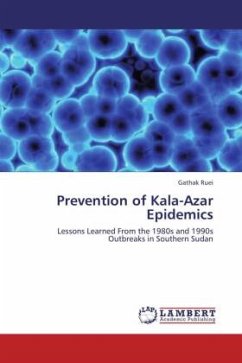Kala-Azar, similarly known as visceral leishmaniasis is a condition of chronic, systemic disease, transmitted by the sandfly vector. Main symptoms of Kala-Azar comprise of high fever, extensive weight loss, swelling of the spleen and liver, anemia, bleeding, wasting, weakness, darkening of skin, and swollen glands. Major risk factors such as civil war, lack of food, poor nutritional status, poor living conditions and health systems, and degraded environmental and climate conditions predispose people to Kala-Azar. Furthermore, human activities, such as removing timber, mining, building dams, large-scale agricultural cultivation, road construction through forests, massive human migration from rural to urban areas are attributed for increased exposure to Kala-Azar. Malnutrition has been documented as a key risk factor for the growing severity of Kala-Azar. Effective case management of Kala-Azar requires better home care management, plus early diagnosis and full treatment plans. The goal should aim at decreasing case-fatality rates, improving the integrity of the health structure and increasing the use of health services by Kala-Azar patients.
Bitte wählen Sie Ihr Anliegen aus.
Rechnungen
Retourenschein anfordern
Bestellstatus
Storno








